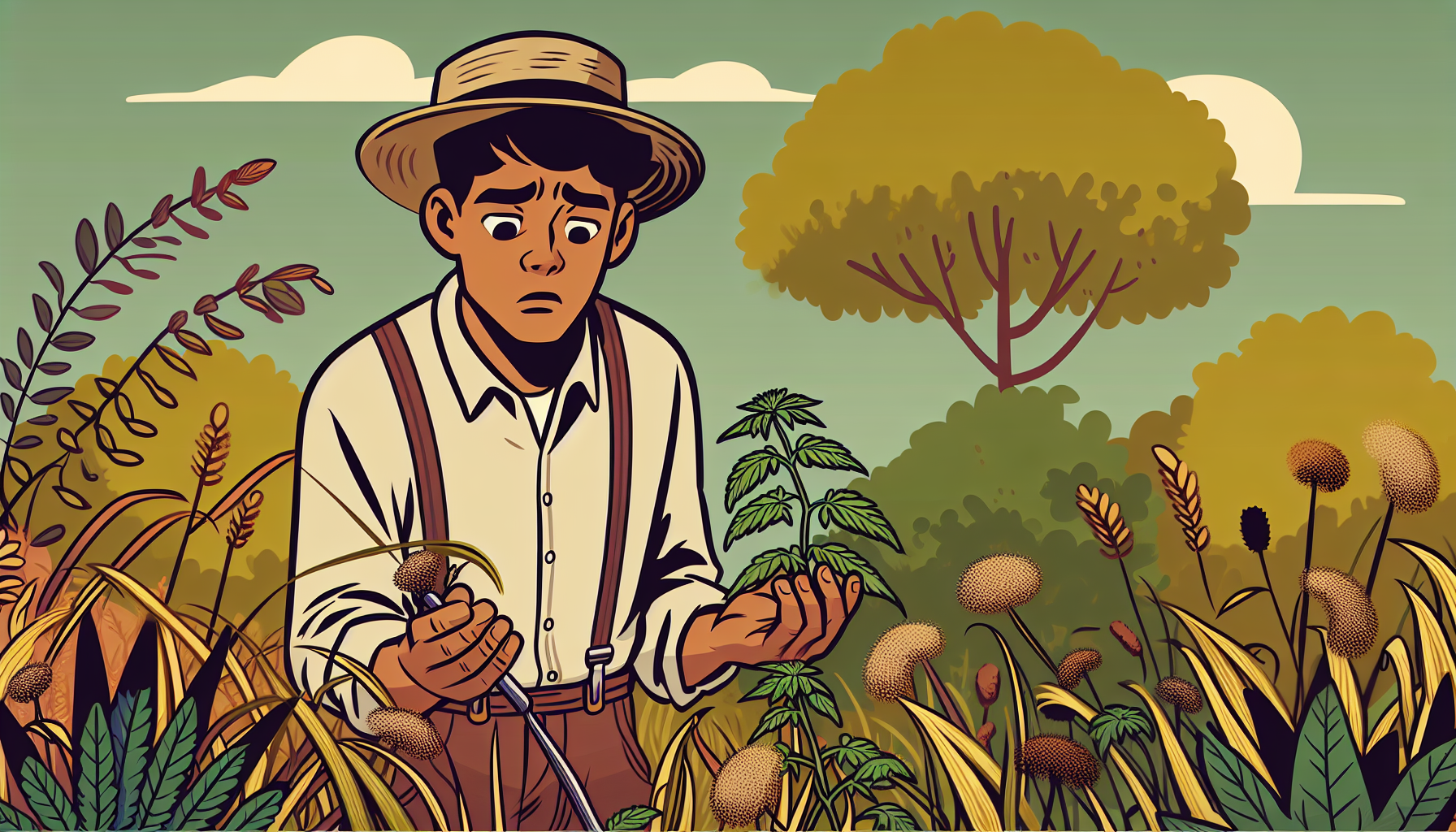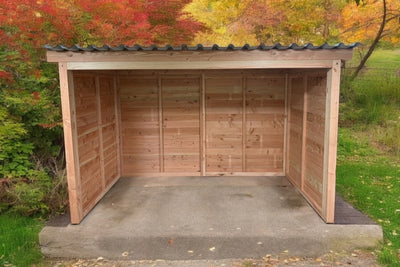Natural fertilizer for the garden: tips for sustainable gardening in Switzerland
Many amateur gardeners in Switzerland want a healthy, vibrant garden - whether it's a flowering oasis, a high-yield vegetable garden, a raised bed on the balcony or a robust play lawn. Those who want to garden sustainably rely on natural fertilizers instead of fast-acting chemicals. This protects the soil, groundwater and pets and is suitable for typical Swiss conditions such as calcareous soils, high altitudes, foehn or waterlogging on the Central Plateau. Natural fertilizer promotes soil life, builds up humus and reduces the risk of leaching. It works in allotment gardens as well as in family gardens and can be combined with mulch, plant slurry and mycorrhiza. In this article, you will receive tried and tested tips on how to use compost, manure and plant dips correctly, where to source materials locally and which dosages are appropriate for each season - so that your garden remains resilient, productive and authentically CH.
Natural fertilization methods provide an ecological alternative to synthetic products. They strengthen the soil ecosystem, improve soil quality in the long term and support healthy harvests without problematic residues.
Why should you use natural fertilization methods in your garden?

Benefits of natural fertilization methods for the environment and health
Natural fertilizers increase yields and vitality, stabilize humus build-up and make the soil more resilient to periods of drought or heavy rainfall. Especially in Switzerland, with its small plots, calcareous soils and varying altitudes, this regenerative care pays off.
In contrast to synthetic products, natural fertilizers work together with microorganisms, earthworms and mycorrhiza. This keeps the soil alive, nutrient-rich and resistant to erosion or compaction.
Those who rely on natural substances reduce the risk of over-fertilization, residues on vegetables and pollution of the groundwater. Families with children and pets benefit from a low-poison garden.
Differences between chemical and natural fertilization methods
- Speed of action: Chemical fertilizers work quickly, natural fertilizers build up their effect slowly and stabilize the nutrient cycle.
- Nutrient availability: Natural fertilizers release nutrients via soil life - this protects the environment and reduces leaching.
- Soil structure: Organic fertilizers promote humus formation and improve soil quality in the long term.
- Health aspects: Natural methods do not require synthetic additives - ideal for vegetables, herbs and play lawns.
If you have sustainability, regionality and family friendliness in mind, natural fertilizers are a particularly sensible option.
Which natural fertilizers are suitable for the Swiss garden?
Organic options: Compost and organic waste

Compost is the most versatile natural fertilizer and can be produced inexpensively using kitchen and garden waste. Fruit and vegetable scraps without fat, leaves, lawn clippings and chopped branches are transformed into humus-rich soil for vegetable beds, perennials and balcony boxes.
Depending on the climate and mixture, rotting in Switzerland takes about 6 to 24 months. Mature compost improves the soil structure, increases water retention and provides gentle basic fertilization - ideal for "fertilizing vegetable beds naturally" and creating raised beds.
Many municipalities collect organic waste separately and offer composting areas or green yards with ready-made material. In Geneva, for example, there is cheap or free compost for private individuals, details can be found at the canton of Geneva. ge.ch: Acheter du compost
Animal fertilizers: horse, sheep and chicken manure
Animal manure provides many nutrients and is suitable for tomatoes, cabbages or roses. Always make sure the material is well seasoned to avoid salt and germ pressure.
- Horse manure: Popular in seasoned form, brings structure, potassium and mild warmth to beds and raised beds.
- Sheep manure: Dry, nitrogen-rich manure, ideal for compost mixes or for cold frames in cool regions.
- Chicken manure: Very concentrated, always dilute or compost, otherwise there is a risk of root damage.
In the countryside, you can buy manure directly from farms. Fresh manure can burn plants; at least six months storage time is recommended before the natural fertilizer is applied over a large area.
How do you make your own natural fertilizer?
Step-by-step instructions for making
your own compost A compost heap or thermal composter is suitable for terraced gardens or larger terraces. This produces natural fertilizer of consistent quality
:- Choose a location: Semi-shady, sheltered from the wind and with a direct connection to the soil for active soil life.
- Suitable materials: Mix brown structural substrates such as leaves and straw with green waste such as fruit peelings and grass cuttings.
- Control moisture: Damp like a wrung out sponge, keep neither wet nor dry as dust.
- Turning: Mix through every 1-2 months, this aerates and speeds up the rotting process.
After 9-12 months, mature compost is dark, crumbly and smells pleasantly earthy. It is particularly suitable as a natural fertilizer and soil conditioner in spring and autumn.
Tips for using kitchen and garden waste
The following materials are suitable for compost and make a balanced natural fertilizer: vegetable and fruit waste, coffee grounds and unbleached tea filters, leaves, shredded branches, cut flowers and shredded eggshells.
- Vegetable and fruit waste
- Coffee grounds and tea filters (unbleached)
- Leaves, shredded branches, cut flowers
- Egg shells (crushed)
Avoid cooked food, meat, cheese and large quantities of citrus peel or seed-rich weeds. This disturbs the rotting process and can attract pests.
What are the best techniques for using natural fertilization methods?
Dosage and timing of application
The right amount is crucial, as even natural fertilizers can be harmful if overdosed. Base your application on crop, season and soil type and work material shallowly into the top layer.
- Vegetable beds: Work in 5-10 liters of mature compost per m² before sowing, add more for heavy eaters.
- Fruit bushes & perennials: Add 2-3 cm of compost in spring, then mulch.
- Lawns: Apply a thin layer of humus two to three times a year; ideally in spring and fall.
Do not place compost or manure directly on the roots, but spread it evenly over the surface. Top dressing with fine compost after scarifying is a good way to "fertilize the lawn naturally".
Combination options with other care products
Natural fertilizer works particularly well in combination with mulch, planting liquids and mycorrhiza. This keeps the soil moist, nutrients are better utilized and weeds are suppressed.
- Mulch: Protects the soil from drying out in summer and from the cold in winter; grass, leaves or bark residues are suitable.
- Plant soaks: Nettle or comfrey liquid manure provides additional minerals during growth phases.
- Mycorrhiza: Supports roots in absorbing nutrients and strengthens stress resistance.
This combination stabilizes the ecological balance, reduces pest pressure and increases yields - especially in raised beds and pots with limited soil volume.
How do you optimally care for your plants with natural fertilization methods?

Avoid mistakes: Common mistakes when fertilizing
Many problems arise from applying too much at once, incorrect timing or immature material. Natural fertilizers work reliably if the quantities and degree of ripeness are right and the weather is suitable.
- Too much fertilizer can damage roots and disrupt soil life.
- Late fertilization in late autumn encourages soft growth and reduces frost hardiness.
- Fresh manure, unripe compost or moldy material should not be added to the bed.
A compost thermometer and odor control help to assess the compost. A simple soil analysis from the garden center ensures precision.
Recognizing and remedying signs of nutrient deficiency
Plants often clearly indicate deficiencies. Yellow leaves indicate a lack of nitrogen; compost tea, diluted liquid manure or a thin layer of compost as a natural fertilizer can help.
- Yellow leaves: Often a nitrogen deficiency, compensate with compost tea or nettle slurry.
- Slow growth: Phosphorus deficiency, counteract with mature compost and good soil aeration.
- Weak fruit set: Potassium requirement, carefully dose comfrey manure or well-seasoned manure.
Observe local rules: In some municipalities, such as Bern, wood ash is undesirable in garden soil. Therefore, always check the cantonal regulations before using ash.
Where can you find useful resources and local suppliers in Switzerland?
Gift tables and markets for organic garden products
Many municipalities and neighbourhood initiatives organize plant swaps, gift tables or compost days. There you can often obtain natural fertilizer cheaply or free of charge and network with like-minded people.
- Compost days: Regional waste disposal centers and composting plants offer loose compost; dates vary depending on the canton.
- Swap markets & urban gardening: Regular plant swap events are held in cities such as Basel, Lucerne and Bern.
The Swiss-wide positive list of approved fertilizers and additives for allotment gardens can help with targeted product purchasing. This ensures that your natural fertilizer remains compatible with organic standards. FiBL: Positive list for allotment gardens 2025
As you can see: Natural fertilization methods are environmentally friendly, effective and easy to implement locally. Whether in the countryside, in the city or in raised beds - you can fertilize any garden sustainably with compost, stored manure and plant dips.
Start your garden project now: start small, observe plants, note your experiences and optimize seasonally. So not only grow tomatoes and perennials - but also your know-how. Discover more tips and apply them directly.


